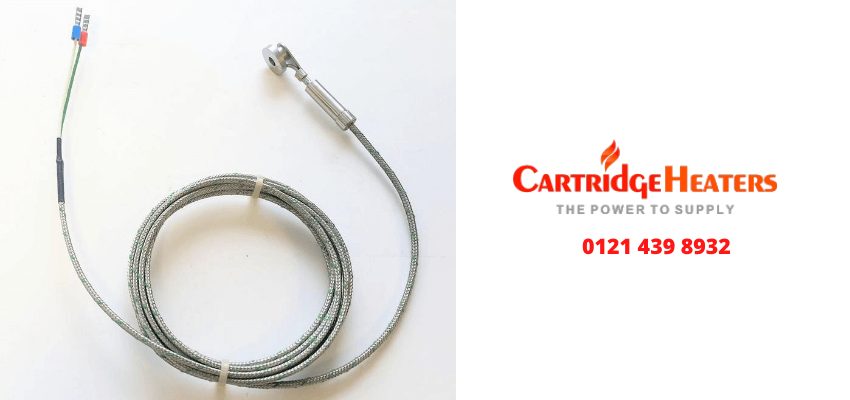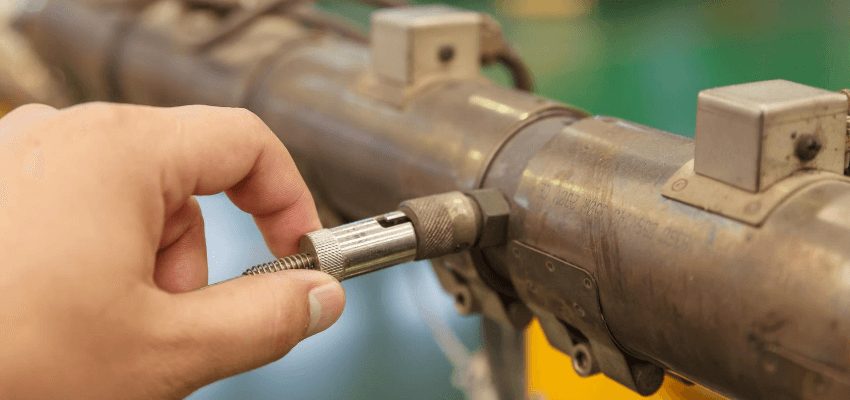We understand. Choosing the right temperature sensor can be a bewildering task – especially if you’re trying to compare and contrast a J type thermocouple and K type thermocouple.
Superficially, these products seem very similar. And unless you have prior knowledge in this area, it can be difficult to know the differences between the two. Each one has its own strengths and weaknesses, which make them more or less suitable for certain tasks and applications.
But there’s no need for trial and error. To avoid confusion (and the wrong purchase!), here, our experts explore these strengths and weaknesses and outline the main uses for each thermocouple.
J type thermocouples
Made from a combination of iron and constantan (i.e. a nickel/copper alloy), J type thermocouples are relatively cheap to buy – yet they offer accurate temperature measurements between 0°C and 816°C. This makes them a cost-effective option for heat processes (such as the manufacture of plastic) and monitoring temperatures in inert materials and vacuum applications.
They also demonstrate excellent resistance to corrosion and are ideal for use in electric furnaces.
K type thermocouples
K type thermocouples are the most popular temperature sensors currently on the market.
They have a much wider temperature range than J type thermocouples, capable of measuring from 0°C – 1260°C. As such, they’re particularly useful in extreme heat applications and are commonly used for process plants (e.g. chemical production) and to check the safety of heating appliances.
They also demonstrate much better resistance to oxidisation and acidity.
In fact, K type thermocouples work most effectively in a clean oxidising environment – the type where a J type thermocouple may quickly become oxidised and damaged. This is because they’re made from chromel (i.e. nickel/chromium alloy) and alumel (i.e. nickel/aluminium alloy), and it makes them the perfect option for oxidative and corrosive applications and damp conditions.

Are there any other thermocouple types?
Yes, there are many different types of thermocouple to choose from – each with unique characteristics in terms of their temperature range, resistance and application capability.
Some of which include:
T Type Thermocouples
These are made from copper and constantan. As a result, they’re very stable and are often used in extremely low-temperature applications, such as cryogenics and ultra-low freezers.
E Type Thermocouples
Made from a combination of chromel and constantan. These have a stronger signal and higher accuracy than K type and J type thermocouples, but only at moderate temperatures (< 500°C).
N Type Thermocouples
N type are manufactured from nicrosil and nisil (i.e. nickel-silicon alloy). They share the same accuracy and temperature limits as a K type thermocouple, but are slightly more expensive.
S Type Thermocouples
Constructed from platinum-rhodium and platinum, S type thermocouples have an extremely large temperature range and are most commonly found in the biotech and pharmaceuticals industry.
Indeed, for some applications, one of these lesser-known thermocouples may be more suitable. Particularly, for example, if you’re looking to measure extreme temperatures. But in most cases, a K type thermocouple or J type thermocouple – such as those available at cartridgeheaters.co.uk – will do the job effectively, and for a much more reasonable cost.
Contact our thermocouple experts today
More information on this topic can be found in our blogs: ‘The uses and benefits of both K type and J type thermocouples’ and ‘Which temperature sensor should I buy?’. So why not take a look, do a little research and – before adding a thermocouple to your basket – ensure it’s the right one.
If you’re still struggling to make a decision, or have a question about the K type and J type thermocouples stocked in our store, be sure to get in touch. Our team have excellent knowledge of all the temperature sensors available, including their strengths, weaknesses and uses. They’re always happy to help and, having listened to your requirements, will gladly advise on the best one for you. Simply give us a call on 0121 439 8932 or send an email to sales@cartridgeheaters.co.uk. For a more in-depth view of thermocouples visit here.

